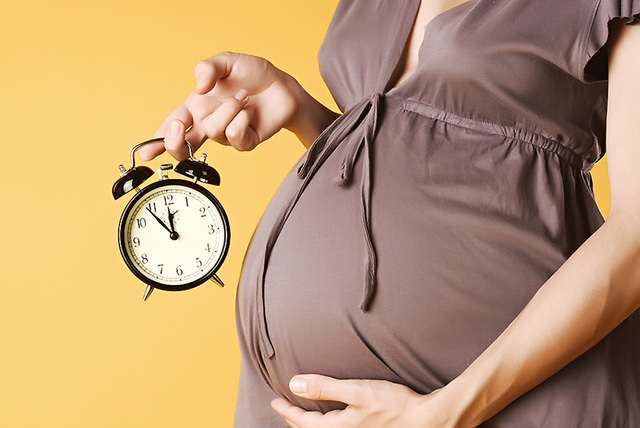
Many women have heard about the infamous reproductive “biological clock”, but they might not know it is quite real. Aging is a normal, inescapable process. As you age, your fertility declines due to age-related changes in your ovaries. You are born with all the eggs that you will ever have, unlike men who continue to produce sperm their entire lives. Of the eggs remaining at puberty, only about 200 will be ovulated during your entire reproductive years and the rest will undergo atresia. Atresia is a degenerative process that occurs regardless of whether you are pregnant, have normal menstrual cycles, use birth control, or are undergoing infertility treatment. Smoking appears to accelerate atresia and is linked to earlier menopause.
Unfortunately the outward signs of a woman’s reproductive potential are few if at all. The chance of conception generally begins to decline at around 30 years old , although it can begin earlier in some women. At age 30, a healthy, fertile woman has a 20% chance of success in one month of trying. By age 40, this chance has declined to just 5%.
In rare cases, a woman may have premature ovarian failure, and her ovaries may stop producing eggs much earlier, perhaps in her late 20s.
Not only does a woman’s reproductive potential decrease with age, a woman’s chance of miscarriage increases with age . This increase in miscarriage is probably due to the quality of eggs (increased number in abnormal eggs) she is producing as she ages .
Ovarian Reserve
Ovarian Reserve refers to the quality and quantity of eggs in the ovaries and how well they respond to the hormonal signals from your brain. Ovarian reserve can be evaluated through a simple blood test and ultrasound. The blood test is used to measure the hormones FSH (Follicle Stimulating Hormone), LH (Lutenizing Hormone), and Estradiol on cycle day 2, 3 or 4 (Day 1 being your first day of full menstrual flow). High levels of FSH indicate that your ovarian reserve is low and therefore your chances of conception are low. Your physician may also perform an ultrasound count the number of small, or “antral”, follicles in your ovaries. A low number of follicles predicts increased chance of a poor response to treatment and a decreased chance of live birth.
Treatment
There are many different treatments for infertility. The decision to pursue treatment for infertility is an important decision and should be discussed with your partner and physician. As a woman ages, not only does the woman’s fertility potential decrease but also the choices of effective treatment become more limited. Traditional hormonal stimulation of the ovaries combined with intrauterine insemination may be the preferred treatment oprion for some patients under 40, but are much less effective in women over 40 years of age. In vitro fertilization is the most effective treatment for women at any reproductive age, but the live birth rate for women using their own eggs for IVF declines considerably in women over 40. IVF success rates in women over 40 are greatly increased by using a young egg donor. While age can have a dramatic effect on the ovaries and the eggs produced, the uterus of a woman in her 40s is usually as good as that of a younger woman. However, many women would prefer to use their own eggs instead of an egg donor, and therefore should start trying to conceive well before the age of 40.
Conclusion
Aging has a profound effect on all of us. The signs of aging on a woman’s reproductive ability may be subtle or hidden altogether. Women should understand that ovarian decline is a normal and continual process as they plan their futures. Unfortunately, there is no treatment that can restore eggs or improve their quality. Therefore, it is important that women are knowledgeable about the likely effects of aging on their fertility including a general decrease in fertility, a greater risk of miscarriage and a greater risk of chromosomal abnormality in newborns. If you are concerned about your reproductive potential or are having difficulty getting pregnant, please contact our office to schedule an appointment.







